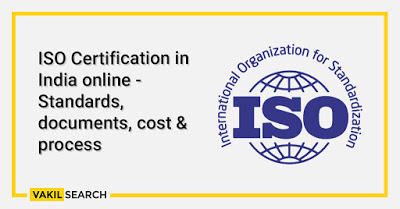ISO 26000 is an international standard that helps organizations to assess and modulate their operation in a socially responsible manner. It helps organisations in their objectives, process & operations, and gaining confidence in eyes of customers, employees, communities. It was introduced in the year 2010 as an international consensus. The ISO 26000 specification differs from other standards as it provides guidance rather than regulations.
It’s specification applies to every entity across the world, irrespective of their size, location, or type of business. Read on to find out more about the it’s specifications.
Features of the ISO 26000 Specification
- This standard applies not only to businesses and companies but to all organizations. The standard applies to educational institutions, hospitals, and even charities.
- Unlike other standards, this standard is a voluntary guidance specification.
- You cannot get an ISO 26000 certification for your business. It is more of an intention statement.
- However, you can discuss it’s compliance of your business with stakeholders and get an opinion to improve the same.
- This standard compliance is entirely voluntary. By that, we mean you cannot conduct audits, tests, or provide certificates based on ISO 26000 standards.
- Though the ISO 26000 standard might not have practical value, it has a lot of ethical value.
Protocols of the ISO 26000 Specification
Key principles of ISO 26000:
The main principles of the it’s standard are based on the general social responsibilities every entity must follow:
- Accountability
- Transparency
- Ethical behavior
- Respect for stakeholder interests
- Respect for law
- Respect for international norms of behavior
- Respect for human rights
Core subjects:
The following are the core areas of this standard focuses on:
- Organizational governance
- Human rights
- Labor practices
- Environment
- Fair operating practices
- Consumer issues
- Community involvement and development
You can download the ISO 26000 standard specifications booklet from the official portal in a paid version.
Read More: Tips For Creating A Chat Marketing Plan
Why is ISO 26000 necessary?
- The ISO 26000 standard, though not certifiable, can bring a lot of benefits to your business or organization.
- The specifications of the standard enable corporates and organizations to understand their current state concerning society and the environment.
- By analyzing that, organizations can formulate more strategies to become more socially responsible, which in turn elevates their image in the eyes of the stakeholders.
- Most importantly, though the ISO 26000 standard is not certifiable by itself, it will serve as a prelude to certifiable standards like ISO 9001 (quality management), ISO 14001 (environmental management), and ISO 50001 (energy management).
Advantages of the ISO 26000 Standard
Complying with this standard can bring the following advantages to your organization:
- It will bring a positive impact on your HR team, which will directly reflect on the employees and clients.
- It improves your reputation among both contenders and customers.
- Complying with this standard will elevate your brand image.
- It will increase the commitment your employees have towards your company.
- It will have a positive impact on marketing and customer engagement.
- Its compliance also elevates your reputation among stakeholders, media, and even the government.
Frequently asked questions
1. Is the ISO 26000 standard measurable?
No, there is no standard measurement for it. However, this acts as a tool for a company or organization to formulate its strategy to improve its corporate social responsibility.
2. Does the ISO 26000 standard apply to SMEs as well?
No, it doesn’t apply to SMEs. It is because this compliance demands a lot of effort from the company, especially in terms of finance, time, and personnel. Since SMEs do not have the requirements to fulfill this standards with its fewer resources, this sector is exempted from the same.
3. Does the ISO 26000 standard specify the same standard for every company across the globe?
Since this standard was formulated after getting consent from multiple stakeholder representatives from both developed and developing countries, it would suit every organization across the globe.
4. Can a country change the ISO 26000 standards by itself?
A country either can vote for or against the updation of this standard but cannot make changes on its own. The ISO committee has around 162 member countries. About 80 countries around the world have adopted its standard. Therefore, to make changes to it, one must wait for approval from the entire committee.
Is the ISO 26000 standard certifiable?
No, you cannot get this compliance. Also, the government cannot conduct audits or tests to check this compliance of a company. It is a voluntary standard that improves the corporate social responsibility of a company.

